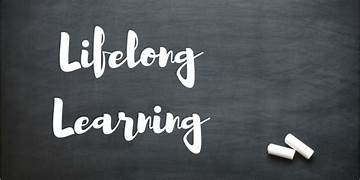Lifelong learning is the ongoing, voluntary, and self-motivated pursuit of knowledge for either personal or professional reasons. It is important for an individual’s competitiveness and employability, but also enhances social inclusion, active citizenship, and personal development.
There are many benefits to lifelong learning. For individuals, it can lead to increased knowledge, skills, and abilities. This can lead to improved job prospects, higher salaries, and greater job satisfaction. Lifelong learning can also help individuals stay up-to-date on the latest trends and technologies, which can be essential in today’s rapidly changing world.
For organizations, lifelong learning can lead to a more skilled and knowledgeable workforce. This can lead to improved productivity, innovation, and customer service. Lifelong learning can also help organizations to attract and retain top talent.
For society as a whole, lifelong learning can lead to a more educated and engaged citizenry. This can lead to improved decision-making, problem-solving, and critical thinking skills. Lifelong learning can also help to reduce social exclusion and inequality.
There are many ways to engage in lifelong learning. Formal education, such as taking courses at a college or university, is one option. However, there are many other ways to learn, such as reading books and articles, attending workshops and seminars, taking online courses, or simply talking to people who know more than you do.
The most important thing is to find a learning method that works for you and to make a commitment to lifelong learning. The world is changing rapidly, and the only way to keep up is to continue learning.
Here are some of the benefits of lifelong learning:
- Improved job prospects: Lifelong learning can help you develop new skills and knowledge that are in demand in the workforce. This can make you more competitive for jobs and can lead to higher salaries.
- Greater job satisfaction: Lifelong learners are often more engaged and satisfied with their work. This is because they are constantly learning and growing, which can help them feel more challenged and fulfilled in their careers.
- Enhanced social skills: Lifelong learning can help you develop your communication, teamwork, and problem-solving skills. These skills can be helpful in both your personal and professional life.
- Increased creativity: Lifelong learners are often more creative and innovative. This is because they are constantly exposed to new ideas and perspectives.
- Improved health and well-being: Lifelong learning can help you stay mentally sharp and active as you age. It can also help reduce stress and anxiety.
If you are interested in pursuing lifelong learning, there are many resources available to help you get started. Your local library, community college, or university may offer classes or workshops that interest you. There are also many online courses and resources available.
The most important thing is to find a learning method that works for you and to make a commitment to lifelong learning. The world is changing rapidly, and the only way to keep up is to continue learning.
Here are some tips for getting started with lifelong learning:
- Set goals: What do you want to learn? Why do you want to learn it? Once you know what you want to achieve, you can start to develop a plan for how to get there.
- Find a learning method that works for you: There are many different ways to learn. Some people prefer to take formal classes, while others prefer to learn on their own. Experiment with different methods until you find one that you enjoy and that helps you learn effectively.
- Make a commitment: Lifelong learning is a lifelong journey. It takes time, effort, and dedication. Be patient with yourself and don’t give up.
- Find a support system: It can be helpful to have people who support your learning journey. This could include family, friends, colleagues, or online communities.
Lifelong learning is an important part of staying ahead of the curve in today’s ever-changing world. By making a commitment to lifelong learning, you can improve your job prospects, increase your earning potential, and enhance your personal and professional development.















